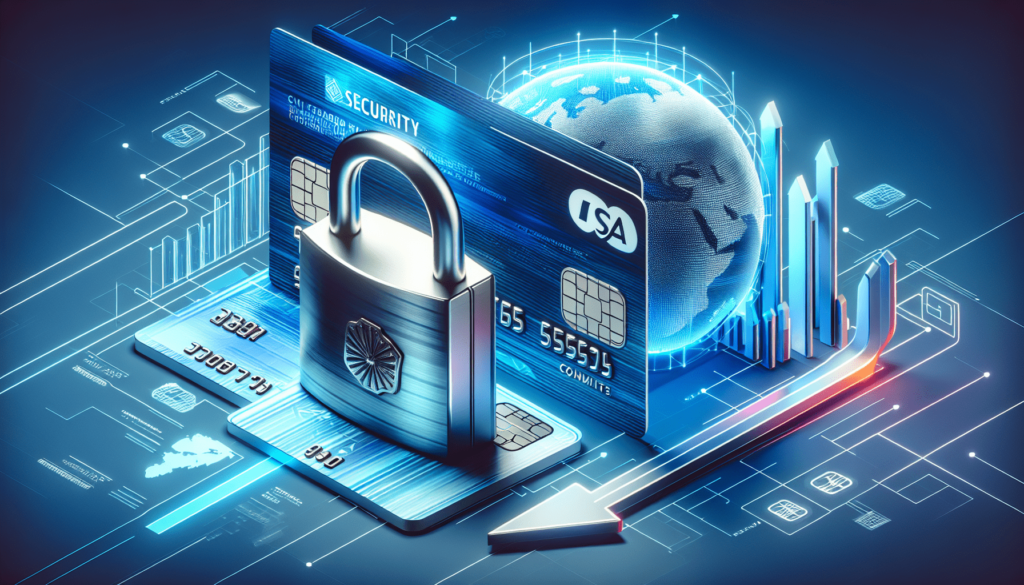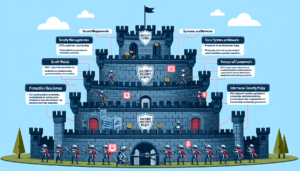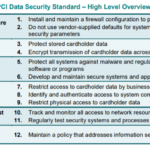In “Understanding the Frequency of PCI-DSS Compliance Requirement”, you will be enlightened on the critical regularity of adhering to Payment Card Industry Data Security Standard (PCI-DSS) protocols. This in-depth discussion clarifies why and how often this crucial compliance is necessitated in order to maintain the highest standards of data security in any entity that handles cardholder data. It aims to elucidate the regulations that are designed to protect both you as a business owner and your clientele. Exploring this subject will equip you with vital knowledge that ensures your ongoing compliance efforts never wane nor lose their efficacy.

Understanding PCI-DSS
Basics of Payment Card Industry Data Security Standard (PCI-DSS)
The Payment Card Industry Data Security Standard (PCI-DSS) is a set of security standards that have been designed to manage payment account data security. Developed by the Payment Card Industry Security Standards Council, this directive protects cardholder data in an increasingly technologically sophisticated world. These requirements were established to enhance cardholder data security and ensure the broad adoption of consistent data security measures across the globe.
Importance of PCI-DSS in businesses
PCI-DSS plays a vital role in businesses, whether small or large and regardless of the industry. Any business that accepts, processes, stores, or transmits cardholder data is obligated to comply with PCI-DSS. Compliance is crucial not only to avoid non-compliance penalties but also to safeguard customer information. Given the proliferation of cyber threats, ensuring e-commerce security has become a priority to maintain and boost customer trust.
Requirement of PCI-DSS Compliance
Who needs to comply with PCI-DSS
PCI-DSS Compliance is crucial for businesses that process, store, or transmit cardholder data. This includes not only merchants but also service providers, including payment gateways, payment processors, hosting providers, and card-production vendors. If your business falls into one of these categories, it is mandatory to comply with PCI-DSS irrespective of the transaction volume.
Implications of not complying with PCI-DSS standards
Non-compliance with PCI-DSS not only leads to serious financial penalties but also entails reputational damage, which could be lethal for businesses. By not complying, businesses expose themselves to vulnerabilities, which can result in data breaches. The after-effects of a breach can lead to lost business, lawsuit, insurance claims, discontinued services by the payment card brands, and in severe cases, bankruptcy.
Frequency of PCI-DSS Compliance
Timeframes for compliance
Compliance with PCI-DSS is not a one-time exercise but an ongoing process. Specific compliance validations, such as self-assessment questionnaires, vulnerability scans, or attestation of compliance, require an annual or quarterly check. However, businesses should continuously monitor and manage their PCI-DSS controls to ensure they are effective and attuned with evolving business and technological landscapes.
Factors influencing the frequency of PCI-DSS compliance
Several factors affect the frequency of PCI-DSS compliance. Some of these include changes in business processes, technological upgrades, new cardholder data flows, or increased transaction volumes. Furthermore, a breach or suspected breach can also necessitate more frequent data security reviews.
Annual PCI-DSS Compliance Assessment
Purpose of yearly PCI-DSS compliance check
The annual PCI-DSS compliance check is an internal process aimed at validating that a company has implemented and maintained the appropriate procedures, guidelines, and security controls, as defined by the PCI-DSS. This helps identify any gaps in security measures and aligns the business with the best data security practices.
Process of the annual assessment
The annual PCI-DSS assessment generally involves several stages, including scoping, assessment, evidence collection, and the execution of necessary remediation. The ultimate goal is to provide sufficient assurance that cardholder data is appropriately protected at all times.
Quarterly Network Scanning
Understanding the need for quarterly scans
With the ever-increasing sophistication of cyber threats, vulnerabilities can creep into an organization’s network infrastructure. Therefore, a quarterly network scan or vulnerability assessment is beneficial to identify potential weaknesses and rectify them before cybercriminals exploit them.
How to conduct a quarterly PCI-DSS network scan
A PCI-DSS network scan should be conducted by a PCI Security Standards Council (PCI SSC) approved scanning vendor, who uses specialized software. The PCI-DSS scan checks for vulnerabilities in all in-scope networks and systems, which process, transmit, or store cardholder data. Upon completion of the scan, a certificate is issued, which should be retained for future reference and compliance evidence.
Maintaining Continuous Compliance
Why continuous compliance is necessary
In the rapidly evolving digital environment, cybersecurity threats continuously proliferate. As such, businesses need to maintain continuous compliance to keep up with emerging risks. Just as organizations evolve, so should their compliance programs. Continual monitoring, testing, and tweaking of security controls are crucial in detecting and addressing potential vulnerabilities.
Steps towards achieving continuous PCI-DSS compliance
Achieving ongoing PCI-DSS compliance requires establishing a robust security policy, creating appropriate controls, regularly auditing the compliance controls, maintaining secure systems and networks, protecting stored cardholder data, and educating employees on the importance of compliance.
Role of PCI Data Security Council
How PCI Security Standards Council influences compliance
The PCI Security Standards Council, a globally recognized body, develops, maintains, and promotes the PCI-DSS. As part of its endeavor, the council supports the development of tools, training, and other resources to help businesses implement and maintain compliance. It also oversees the qualification of security assessors and approved scanning vendors.
Resources provided by PCI Security Standards Council
To assist in compliant efforts, the council provides various resources such as Self-Assessment Questionnaires (SAQ), Approved Scanning Vendors (ASV) solutions, training materials, and guides on best practices. These resources help businesses meet the data security standard and in building a secure payment environment.
External Compliance Validation
Need for external validation audits
External validation audits are critical to verify that businesses are accurately implementing and maintaining the PCI-DSS requirements. These independent checks bring an impartial and objective perspective to reviewing controls, procedures, and systems.
Understanding the roles of Qualified Security Assessors and Internal Security Assessors
Qualified Security Assessors (QSAs) are specifically trained by PCI Security Standards Council to assess an entity’s compliance. For in-house assessments, businesses may choose to use Internal Security Assessors (ISAs) who are also trained and certified by the Council. Both play a crucial role in ensuring true and accurate validation of compliance, thereby maintaining the integrity and effectiveness of PCI-DSS in the long run.
Impact of Technological Transitions on Compliance
Effect of technology changes on PCI-DSS compliance
Technological enhancements can tremendously impact PCI-DSS compliance. New technologies can introduce novel vulnerabilities, hence the existing compliance approach may not remain effective. While tech upgrades can improve business efficiency, it also necessitates updating compliance and security controls to consistently protect cardholder data.
Incorporating new technologies within the compliance framework
Compliance should not hinder the adoption of new technologies, rather enable it. Crucially, new technologies should be incorporated within the PCI-DSS compliance framework. This requires routinely reviewing the PCI-DSS environment, understanding the implications of new technology on this framework, and adjusting the controls to align with the updated infrastructure.
PCI-DSS Compliance Training
Importance of regular training
Regular PCI-DSS compliance training is vital in nurturing a security-conscious organizational culture. Ensuring everyone in your organization understands the importance of compliance and their role in maintaining it, significantly reduces the risk of a potential security breach.
Components of an effective PCI-DSS training program
An effective PCI-DSS training program should cover the basics of PCI-DSS, the reasons for compliance, the possible consequences of non-compliance, and practical instructions for maintaining compliance. The training program should also be updated regularly to reflect regulatory changes and emerging threats.











